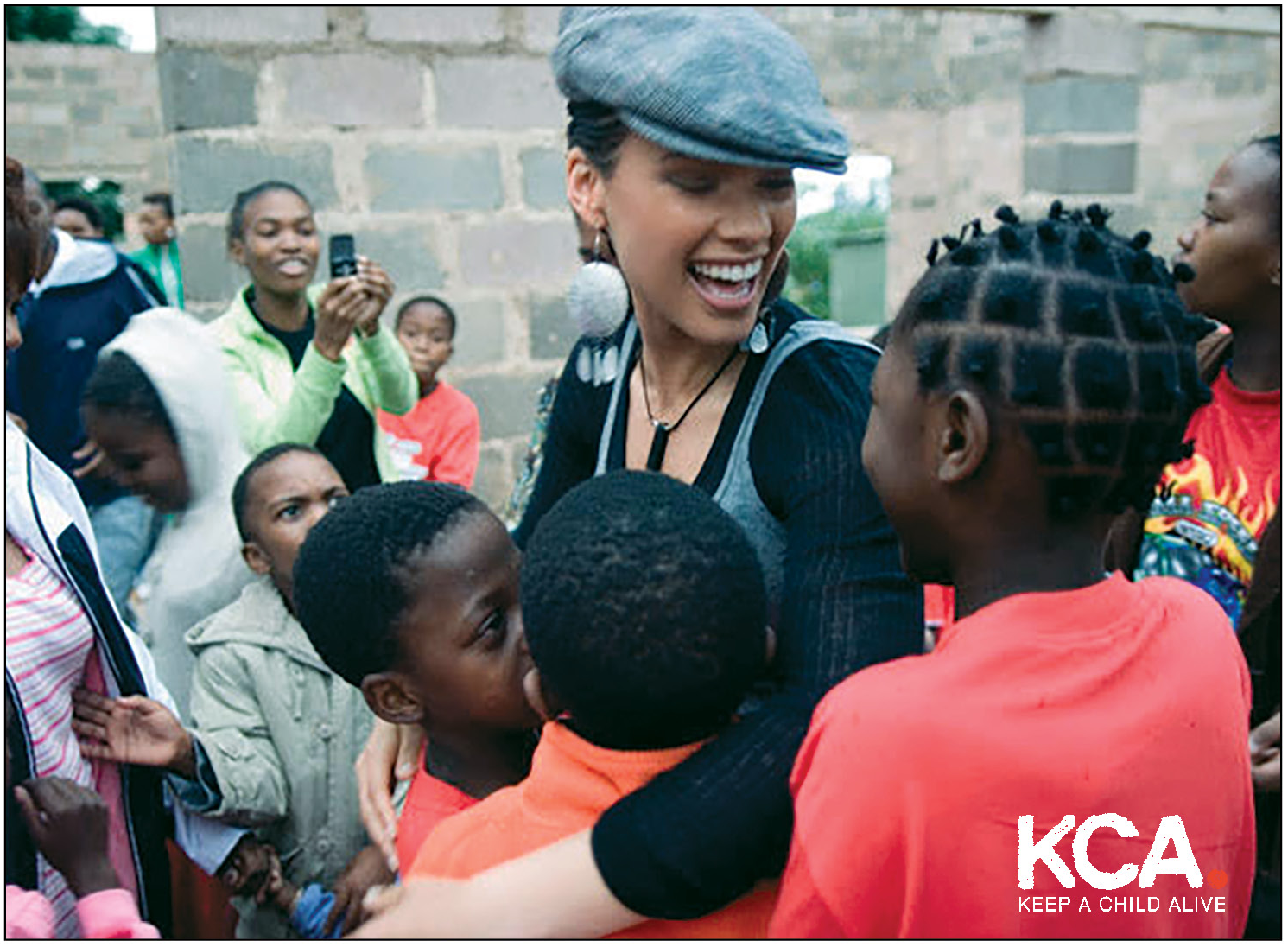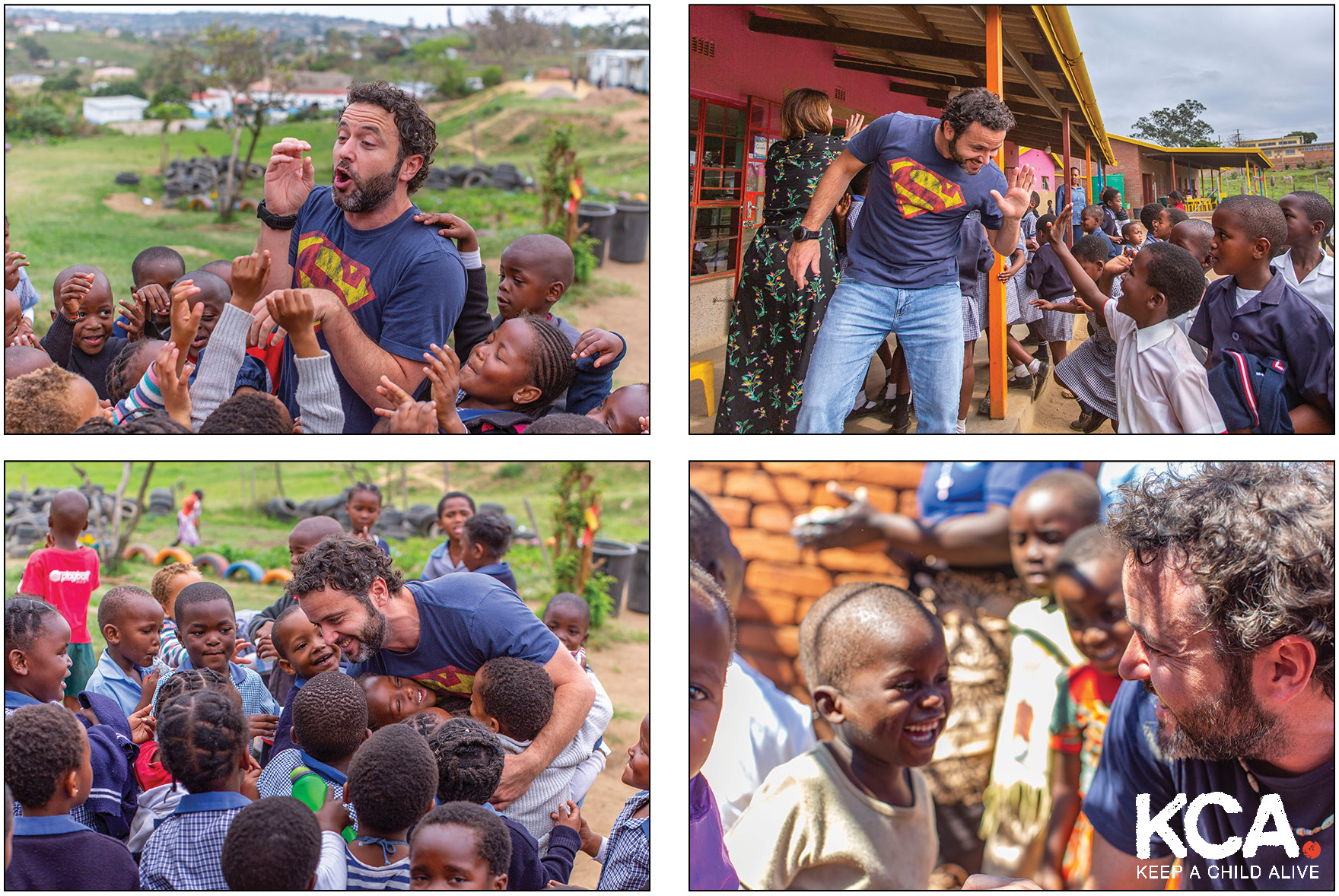- Home
- Media Kit
- MediaJet
- Current Issue
- Past Issues
- Ad Specs-Submission
- Ad Print Settings
- Reprints (PDF)
- Photo Specifications (PDF)
- Contact Us
![]()
ONLINE
![]()
ONLINE

Changing the World for the Better
Editors’ Note
Antonio Ruiz-Gimenez serves as the Executive Chairman and CEO of Keep a Child Alive (KCA) and has been a board member since 2015. In addition to his work with KCA, he is a successful entrepreneur involved with several diverse businesses. He is the co-founder and Managing Partner of ATW Partners, a venture capital/private equity investment firm. Prior to ATW Partners, he co-founded several innovative businesses ranging from city enhancement, to retail, to technology development companies. Ruiz-Gimenez holds a law degree from Universidad Complutense of Madrid.
Foundation Brief
Co-founded in 2003 by Alicia Keys, KCA (keepachildalive.org) is committed to empowering children and young people with the necessary resources, confidence, and opportunities to reach their full potential and live healthier, happier lives. The organization currently provides support to 15 community organizations in 19 countries across Africa, Asia, the Middle East and Europe, reaching 400,000 children and their families. KCA’s core focus is to shift from charity to solidary, unleashing the power of children and young people around the globe.

Will you highlight the history of KCA and how you define its mission?
In 2003, Alicia was deeply motivated by the needless suffering that HIV/AIDS was creating for children and families across sub-Sahara Africa. These children were dying due to lack of access to treatment; such treatment was available, but it was too expensive. KCA was created to stop this injustice and get more treatment for children with HIV/AIDS. Our mission has evolved since then, but what has remained at the heart of what we do is giving children the opportunity to live long and fulfilling lives. We take a holistic approach to care by looking at all angles around the life of a child, their families, their nutrition, education and healthcare.
KCA is celebrating its 20th anniversary. How has KCA evolved since its founding?
The world has dramatically changed over the past 20 years and KCA has evolved with it. Over this time, many governments have stepped up and are now offering the vital treatments needed by those with HIV/AIDS. As a result, we have broadened our focus to look at the wider needs of children living in extreme poverty; we provide a range of programs that include sexual health education, protection against sexual exploitation and abuse, livelihood skills, climate mitigation, maternal health, and vocational training, among other things. Due to the current events over the past few years, we had to add an emergency response approach.
To provide a few examples, when the COVID-19 pandemic started, our work took us to new countries, providing hundreds of thousands of people with vital food packages. The situation in Afghanistan enabled us to mobilize support for women and their families fleeing the new regime. KCA could not look the other way during the crisis in Ukraine, supporting children and families fleeing to safety and gaining access to the care and the resources they needed.
“Millions of Africans die unnecessarily, for what? Because they can’t afford medicines, because they can’t access them, that’s crazy. Let’s change that.”
Alicia Keys
Will you provide an overview of the work of KCA and its initiatives?
Some of our current initiatives include:
What are the keys to driving lasting, sustainable change with KCA’s work?

How has KCA adapted the way it works to address the challenges caused by the global pandemic?
Being in such an unprecedented situation, we had to learn and grow fast and make the most of all of our networks of supporters, partners, and colleagues. We would not have been able to react as quickly without the generosity of our donors.
We initiated a campaign that resulted in the delivery of over 25,400 food and healthcare baskets to 10 countries and impacted more than 109,000 children and their families through working with 16 local partners in El Salvador, India, Iraq, Swaziland, Costa Rica, Rwanda, Uganda, Guatemala, Venezuela, and South Africa. All of this started with one phone call requesting our support to 25 children in El Salvador undergoing a dire situation.
How critical are metrics to measure the impact of KCA’s programs?
KCA believes strongly in accountability and measuring our impact is an important component to this. Our key principles are:
Will you discuss Alicia’s passion and commitment for the work of KCA and how deeply engaged she is in its efforts?
I always say that I cannot speak on behalf of Alicia, I can only share my experience working with her over the past years.
She started KCA under a very simple premise of responding to a critical situation: a mother could not provide the necessary medication to treat her daughter. Alicia stepped in and provided the means to access that treatment. We at KCA keep that action as front and center of what we do daily.
That energy drives our initiatives with children being the core of our mission. She is a committed ally to those we work with. Alicia has been instrumental in our initiatives, providing guidance, support, and vision to our ultimate goal.
To name a few examples, during COVID, her generosity enabled us to dream big and reach many more children than we would have ever expected. During this horrific war in the Ukraine, she stood by our side to implement our programs across the country. During her world tour, she hosted Ukrainian women refugees at her concerts across Europe, spending time with them and listening to their experiences. She provided them with an experience that temporarily removed them from the horrific situation they were faced with.
Alicia is a leader and an inspiration and I look forward to working together with her for many years to come.
What are your priorities for KCA as you look to the future?
Over the past 19 years, KCA has evolved into a platform for change. Children are, and will always be, at the center of all our efforts. We want to continue to grow our network of supporters and local partners. We are building out our community through a digital platform that directly connects supporters with local partners, creating an equal exchange of ideas and resources utilizing technology.
We are always looking for advisors, ambassadors and changemakers who want to help grow our impact, expanding our ability to reach more children and change their world for the better.
We also created a team of athletes (Team KCA), spearheaded by Alicia, and now we run multiple races around the world raising funds and awareness for all our initiatives.
A successful initiative at KCA is defined as one where we come in, we act, we solve a specific problem, we support in the implementation of sustainable solutions, and then we let our local partners take over so that children and their communities can be self-sufficient.
It is our hope that we can replicate past successes in many more areas of need across the globe. One example would be our COVID-19 Relief campaign where we realized that providing a food basket was a short-term solution to a very specific need, so we identified an incredible partner (One Acre Fund) and implemented a new campaign where we are aiming to plant one tree for every child in the world, making this a long-term sustainable solution. We still have a long way to go, but as I said before, we have big ambitions.
Last but not least, KCA would not exist without the true heroes, our local partners. They are spread across the different countries where we work and we would not be in existence today if it were not for their hard work and unconditional partnership. They deserve all the recognition.![]()